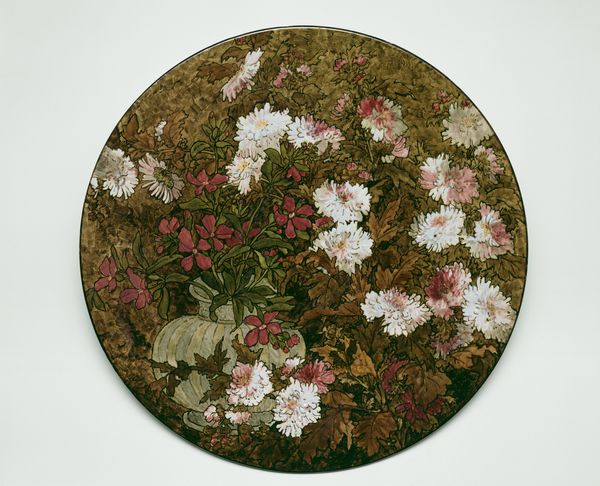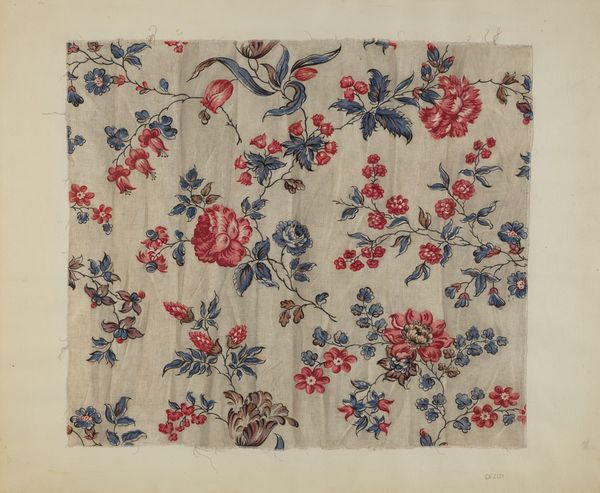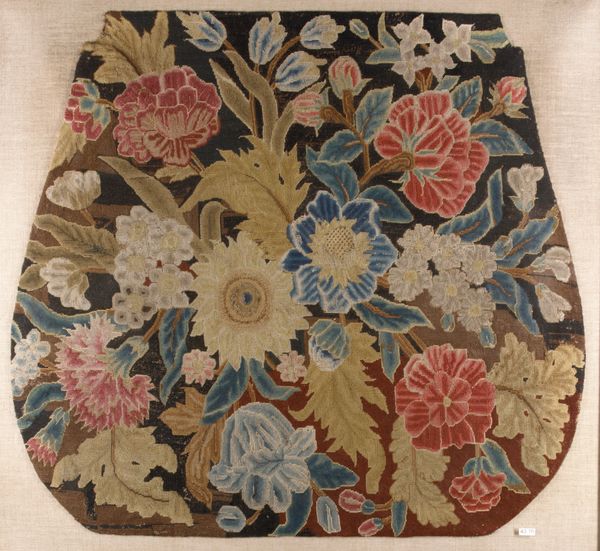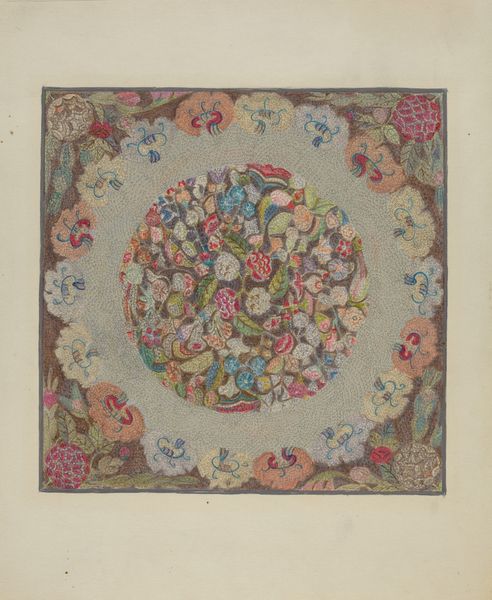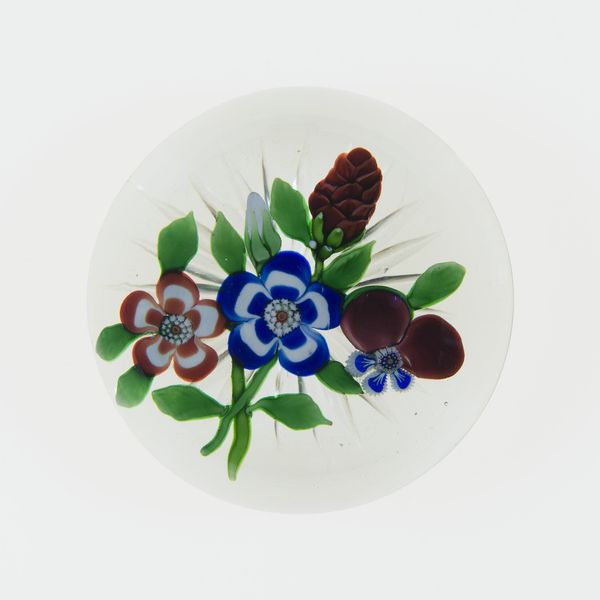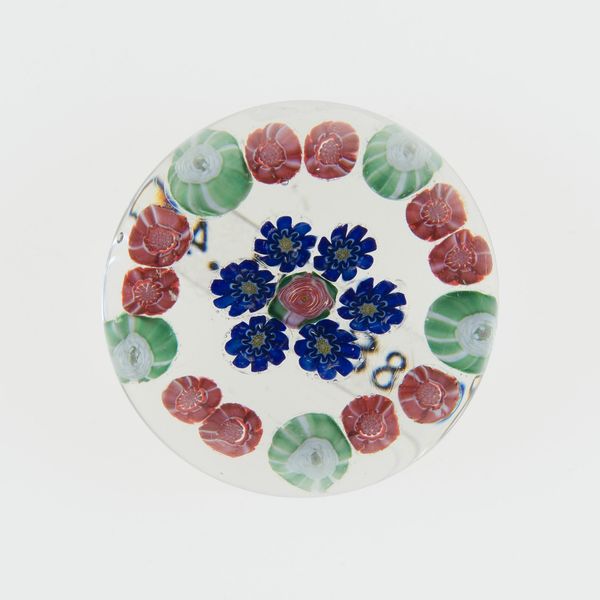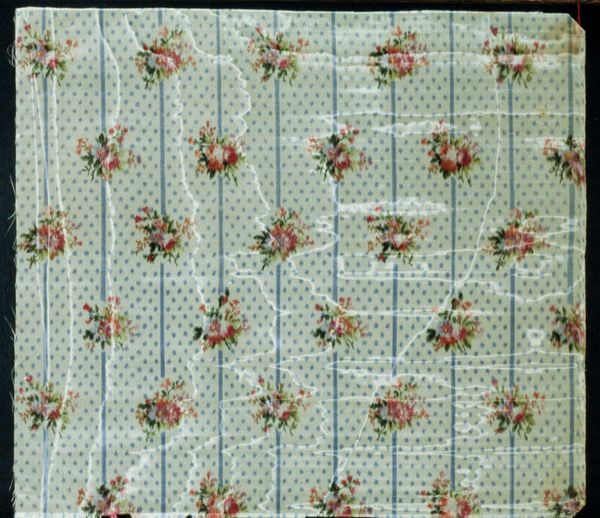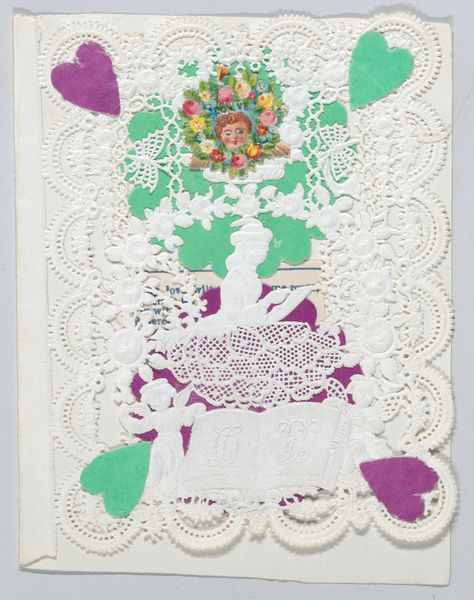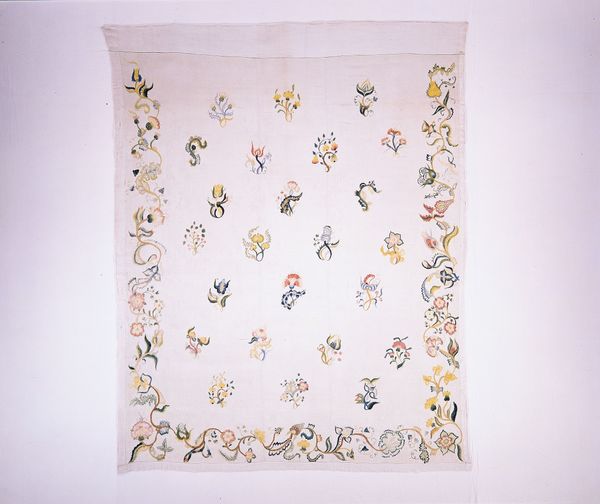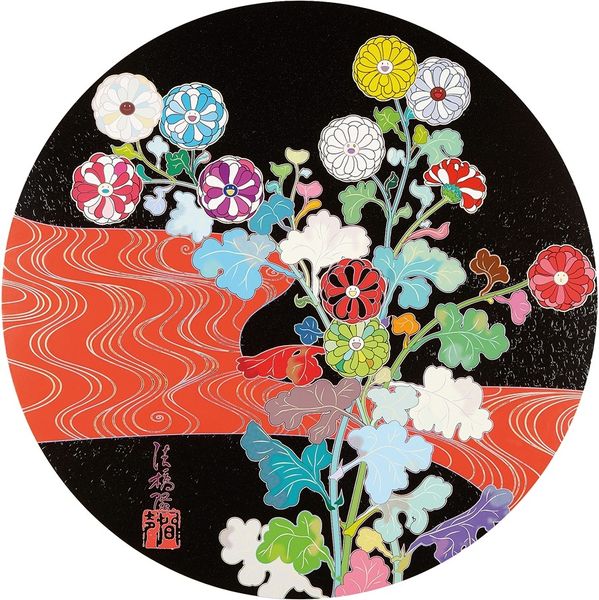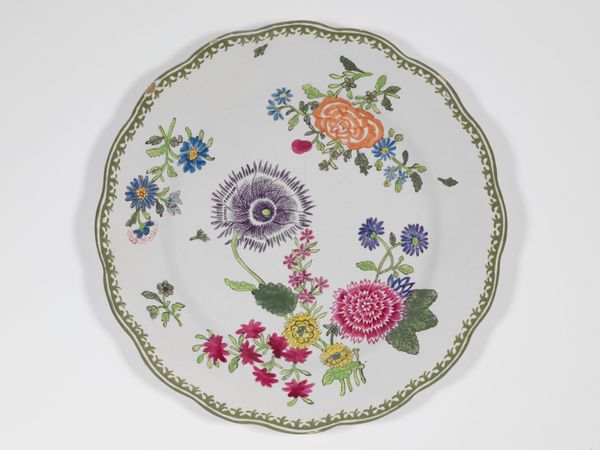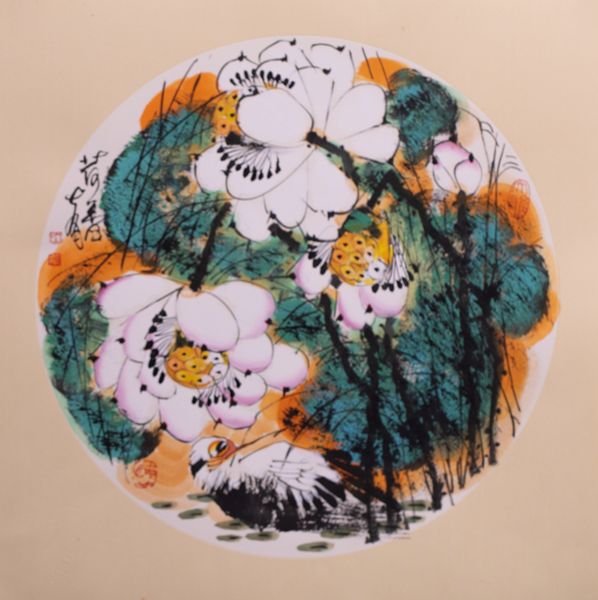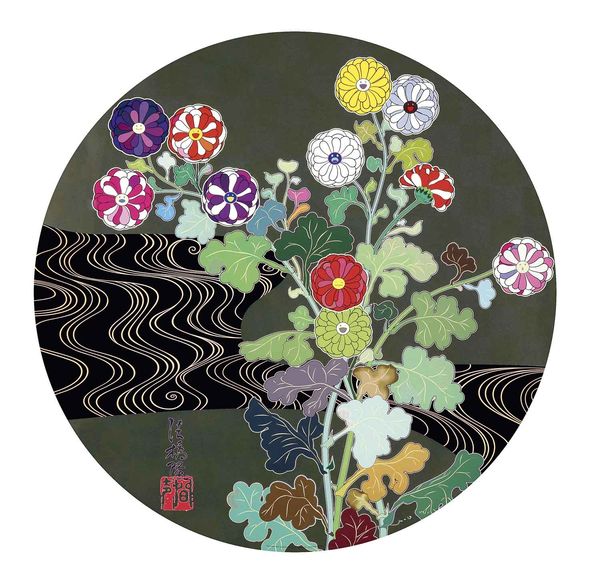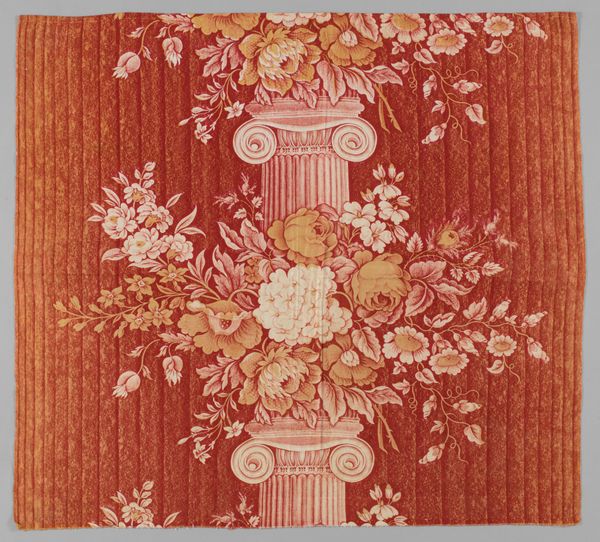
Copyright: Konrad Lueg,Fair Use
Curator: Here we have Konrad Lueg's "Untitled (Gemusterte Plastikfolie, Rosen)" from 1966, a work composed of mixed media and collage elements. Editor: My initial impression is of something deceptively sweet—the floral pattern suggests domesticity, yet there’s an undercurrent of artifice, given it seems to be made from cut plastic sheeting, a kind of commercial covering, and set within a hand-painted frame, or base, if you will. Curator: Absolutely. Lueg masterfully employs appropriation here. The choice of a manufactured plastic floral sheet immediately references Pop Art’s engagement with consumer culture and challenges traditional notions of artistic originality. Consider the gesture of selection and framing. The soft organic pattern printed on such synthetic substance subverts any inherent opposition and becomes an intentional paradox, creating tension by simply placing them together. Editor: That tension seems key to understanding the work, which invites consideration of its material composition. This work isn’t merely a celebration or critique of pop culture but an interrogation of the means of production and the societal value we ascribe to images of such banal kind, with ready made sheets of flowers in commercial mass production. The labor, then, has very little to do with hand work, or artisanship; most of the production here belongs to industrial design. Curator: Indeed, it makes us think about how photography reproduces patterns—the plastic sheet acts as a found image already reproduced infinitely by industrial processes and yet Lueg selects, frames and presents. Furthermore, let us note that he re-assigns it an aesthetic value within the boundaries of art. Editor: This work could act as a commentary about taste, design and consumption that we keep feeding by generating copies of images over images, even as handcrafted production fades to background or becomes rarefied luxury. The flat representation and almost cloying subject of roses are elevated beyond mere decoration into something disquietingly self-aware. Curator: Looking at it this way, Lueg urges us to reassess value, whether economic, societal, or aesthetic. He's laid bare the structures that support our consumption and ways of thinking and assigned meaning within contemporary societies. Editor: A fascinating piece—its deceptive simplicity leads to a deep investigation of production and value, with simple gesture, which questions its role within a social, commercial exchange.
Comments
No comments
Be the first to comment and join the conversation on the ultimate creative platform.
